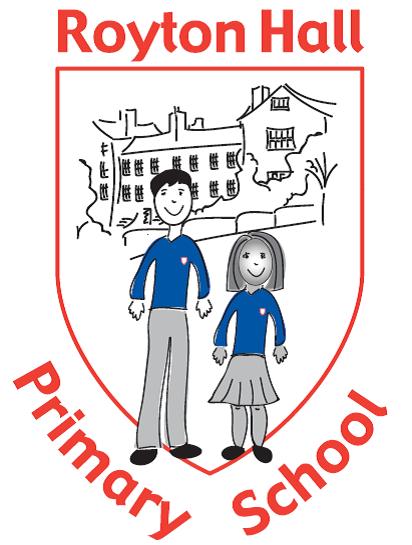Curriculum
Our Curriculum
'Memorable experiences lead to memorable learning'
At Royton Hall a project curriculum approach has been adopted in order to create realistic contexts for learning and different learning pathways so that learning can be more personalised. We endeavour to ensure that our curriculum is fully inclusive and is delivered in a way that makes it accessible for all pupils including those with disabilities or special educational needs.
As we are aware of our children's starting points, we ensure that we provide them with additional enrichment opportunities throughout their time with us. This includes significantly increasing their vocabulary, improving their spoken English and providing a rigorous and systematic approach to reading development.
The key basic skills of English, Maths, ICT and PE are taught well through tightly focused discreet lessons. However this teaching is supported by challenging cross - curricular work through the projects which encompasses the foundation subjects of the National Curriculum.
English work includes Reading, Writing, SPaG (spelling, punctuation and grammar) and Phonics. We follow Little Wandle Letters and Sounds Revised when teaching phonics. In EYFS and Key Stage 1, while our children are learning to read, they read books that are in line with their phonic knowledge and are fully decodable. They then move on to our school reading scheme and follow this into Key Stage 2.
If you have any questions about English you can speak to our English leader: Mrs D Bradley.
We teach maths using the White Rose Hub scheme of learning. We aim to immerse the children in engaging, hands-on, practical activities to develop a deep understanding of maths which will improve their reasoning and problem solving skills. If would require any further information about White Rose Hub maths or any other issue regarding maths you can contact Mrs B Bradley, our Maths leader.
The curriculum is regularly monitored and evaluated and the outcome of this is a coherent curriculum where learning opportunities and progression ensure breadth and balance in realistic contexts whilst instilling a love of learning.
The curriculum is grounded in the following aims, purposes and principles:
The curriculum will have a transformational effect on children's lives hooking them into learning.
Children's social and emotional needs must be met to enable them to access learning and to feel safe out of their comfort zone thus raising aspirations.
Opportunities must be provided for children to explore the issues associated with being future citizens.
Learning is strengthened by essential experiences and realistic contexts within and outside the curriculum.
The curriculum is built on essential experiences and key skills whilst ensuring skills progression across subjects. 'Profound' rather than 'shallow' learning is promoted through a cycle in which concepts are applied in different contexts.
Motivating children and providing enjoyable learning through active involvement and cooperation is key to developing a positive attitude to learning as well as deepening the work that is carried out in maths and English.
ICT should be used to develop deep learning across the whole curriculum.
Children need to strive to understand the nature of learning and how to become better learners whilst feeling empowered to take risks.
To find further information about our curriculum and to view our curriculum maps please visit the relevant Key Stage icons.
'There is always one moment in childhood when the door opens and lets the future in'
Grahame Green, The Power and the Glory
